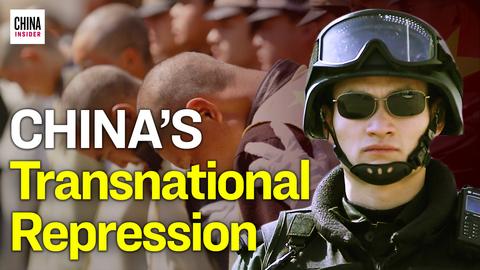China has been operating overseas police stations in G20 member states in the name of hunting down fugitives and recovering stolen assets. But according to a former Chinese diplomat, the presence of Chinese officers overseas is an open attack on the free societies in the host nations, and that China’s ruling communist party has shifted from covert to brazenly public espionage strategies.
CCP’s Espionage Now In the Open
According to a Chinese language Wall Street Journal report on March 29, Chinese anti-graft officials have been stationed in the Chinese embassies of many countries as the CCP ramped up its efforts in fighting corruption beyond its borders. The CCP would seek help from foreign authorities on what the regime said were law-enforcement matters.But Chen told The Epoch Times that there has always been another intention for the CCP’s anti-graft operations of which foreign governments and their employees must be aware.
He explained that when the CCP first launched its operations, it was its Ministry of State Security personnel who were involved—China’s equivalent of the CIA and FBI. After that, Ministry of Public Security staff also started to be deployed overseas under the names “Operation Fox Hunt” and “Operation Sky Net.”
Chen said that the CCP won the cooperation of foreign governments by making its anti-corruption work sound justified.
Kidnap, Coerce, Murder
For example, he said the United States turned a blind eye to the CCP due to economic concerns, Canada secretly cooperated with the CCP, and at one point of time, Australia cooperated openly with the CCP.Chen pointed to the joint anti-drug operation between China and Australia as an example.
“China extended the anti-drugs operation into an anti-corruption operation,“ Chen said. ”But China was actually carrying out espionage operations.”
In early 2022, the Australian Liberal Senator Eric Abetz voiced his concern and called for an investigation of the cooperation.
The Epoch Times has contacted the police for comment.
Chen said that small and developing countries in Asia, Africa, Latin America, and the Pacific islands have basically succumbed to the CCP. It is really easy for the CCP to kidnap anyone in those areas.
In addition, Chen said that if officials in host countries decide to hand over a target’s contact information to Chinese officers, the so-called fugitives would be faced with blackmail.
He said that CCP officers would visit their targets after being given their information by naive host country authorities, and then tell the target that the authorities in the host nation were working with the CCP, and that if they failed to follow the CCP’s order, they would face consequences like the visas of their entire family getting revoked, or having their assets frozen.
The CCP would then say that only by returning to China can they ensure their family’s and relatives’ safety. Target would be told they would only be handcuffed temporarily when their plane lands in China; and that if they cooperate with the state media for propaganda, their sentence would be minimal.
Chen said many of the Chinese nationals were deceived in this way and cooperated with the CCP agents to submit themselves for arrest back to China.
As for the outcome of Operation Fox Hunt, it was like what the regime claimed: Nearly 10,700 suspects from abroad, including more than 60 of China’s 100 most-wanted economic fugitives, have been caught.
Threats to life are a routine tactic the CCP adopts, Chen said, including threats to assassinate children and torture family members—all means of the underworld, Chen said.
Many Chinese surrendered under this kind of blackmail and pressure, he said.
“The CCP will do whatever it wants, people are easily kidnapped back to China,” he said, “They simply bribed the officials, customs, foreign ministries, and so on in many small countries to get the job done.”
Persecution of Dissidents
Chen also pointed out that big data has allowed the CCP to easily locate and control overseas Chinese, “especially the leaders of the Chinese communities, and the families of dissidents in Australia,” he said.Chen believes the CCP has become more rampant overseas, and may directly track targets through their private data.
He warned of the potential for more unfortunate incidents, such as kidnapping, murder, threats, and fatal accidents as a result if foreign governments don’t recognise and put an end to the CCP’s operations on their soil.
He said, “In fact, the CCP’s becoming more aggressive. The activities used to be covert but now it’s open.”
Chen said the anti-corruption campaign may actually target a much wider range of people.
“It is already using this excuse to deal with political prisoners of conscience and anti-communist dissidents in exile,” he said of Chinese authorities, warning that the CCP “is openly violating the sovereignty and the laws of the host country.”
He said that even though many countries have been alerted to the CCP’s aggression and infiltration, many countries continue their appeasement policy after years of money diplomacy and infiltration by the CCP.
Deng-Ke Lee, professor in Foreign Diplomacy at National Chengchi University, Taiwan, said that the CCP’s practise of stationing Chinese officials beyond its diplomatic stations is a serious violation of the norms “not to interfere in the internal affairs” of the host nation and an undermining of their legal system.
He said that no countries in the West should tolerate this improper behavior, be it open or covert, as the regime can easily shift its targets from criminals to political adversaries.
He believes the CCP’s overseas police stations will backfire on the regime as they meet with opposition.




